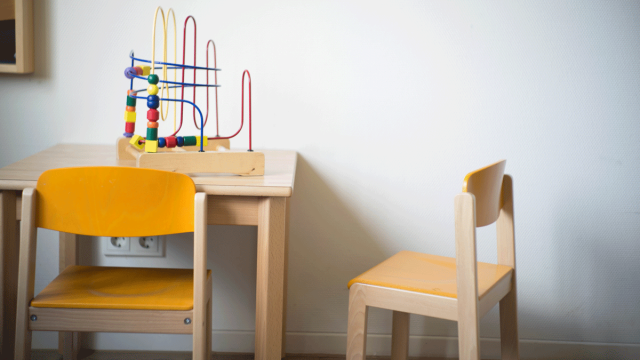Research shows early treatment of autism can be crucial for children’s long-term development, which is why the delays in not only diagnosis but also onset of treatment during the pandemic are particularly heartbreaking. While we all can identify losses during the pandemic—family gatherings, time with elderly relatives, participation in important life events—families whose children with autism didn’t get the treatment they needed are realizing that these losses will have particularly long-lasting effects for their children—and for their families.
Brandie Kurtz, mom to son Wylie James Prescott, 3, told CNN that he had to wait more than a year after his autism diagnosis to begin behavioral therapy. In fact, his therapy wasn’t approved through Georgia’s Medicaid program until just recently, despite her continued requests. “I know insurance, so it’s even more frustrating,” said Kurtz, who works in a doctor’s office near her home in rural Wrens, Georgia.
Parents navigating a child’s autism diagnosis are no strangers to battling with insurance. Awareness and access to autism treatments are on the upswing—all states now have laws requiring private health plans to cover applied behavior analysis, a widely used autism therapy—but it’s sometimes a year or more to receive a proper diagnosis and develop a treatment plan. Once you overcome that hurdle, widely-accepted therapies can cost $40,000 or more a year. The financial burden of these specialized therapies are especially out of reach for families who don’t have insurance or have high-deductible health plans, and kids from minority communities and those who live in rural areas are least likely to get the treatment they need.
And those are just the run-of-the-mill hurdles families face. During the early months of the pandemic, many families canceled in-home services (or they were cancelled by their providers) and virtual therapy—particularly for nonverbal and younger children—was often a bust. Even in a metro area, getting a child an appointment can take months. “We cannot get these families in fast enough,” said Dr. Alan Weintraub, a developmental pediatrician in suburban Atlanta. “It’s heartbreaking.”
When early detection of autism in kids is essential to minimizing their symptoms, a wait—for any reason—has long-term effects. The pandemic added a layer of delay to an already arduous process, and now years have passed and children who would have—and should have—begun treatment in 2020 are still in a holding pattern. Dr. Kristin Sohl, a pediatrician at University of Missouri Health Care and chair of the American Academy of Pediatrics’ Council on Children With Disabilities Autism Subcommittee told CNN, “You would never allow a kid with cancer to experience these waits.”
RELATED STORIES
5 Things I Wish I Had Known about Life with Autism
The New TikTok ‘Orbeez Challenge’ Is Very, Very Unsafe
Teen ER Visits for Eating Disorders Doubled During the Pandemic











